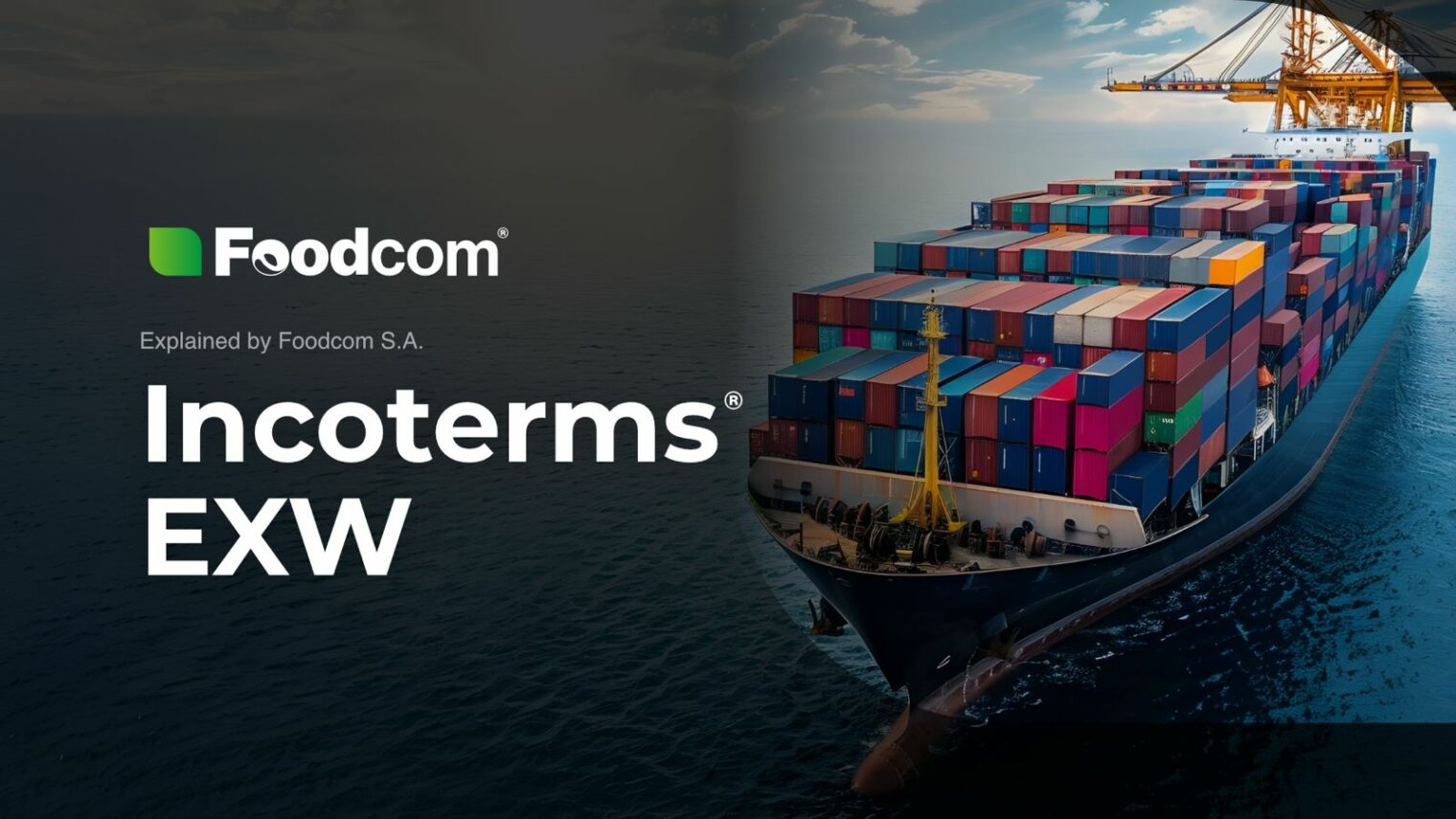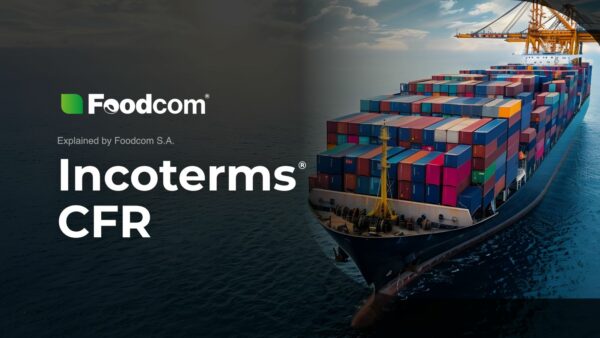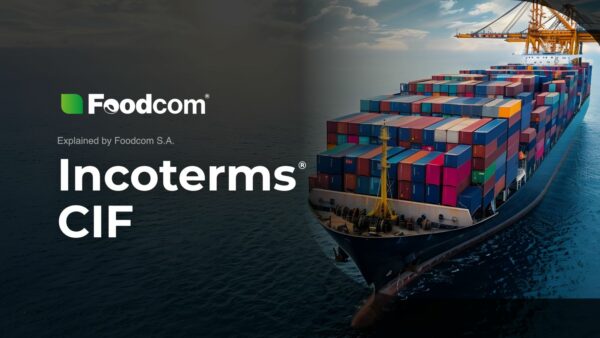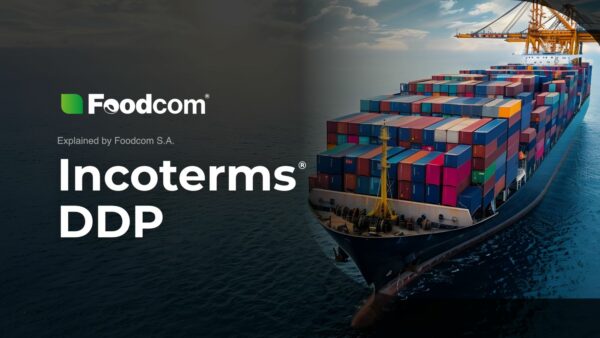- The name Incoterms® EXW is derived from Ex Works.
- According to this, the seller is only responsible for the delivery of the goods and the required documents to a pre-determined location.
- The moment of transfer of risk occurs when the goods are made available to the buyer by the seller.
- The Incoterms® EXW apply to all modes of transport.
One of the most popular Incoterms® is Ex Works (EXW), which is often chosen by small and medium-sized companies. What are the delivery terms? If you want to learn more about Incoterms® EXW, be sure to read on!
What are the Incoterms® rules?
Incoterms® (International Commercial Terms) are international trade clauses that set the rules for commercial contracts between a seller and a buyer. They are important because they facilitate communication between trading partners from different countries, as they use uniform terminology and definitions. There are several types of Incoterms®, and choosing the right one depends on the specifics of the contract and the agreement between the parties.
EXW Incoterms®: what does it mean?
The name EXW Incoterms® is derived from Ex Works. This rule is one of the simplest – according to it, the seller is responsible for delivering the goods and the required documents to a pre-determined location. Under this rule, the seller has little to do, while the buyer bears the greatest burden in terms of loading, risk and cost.
EXW rule: delivery conditions
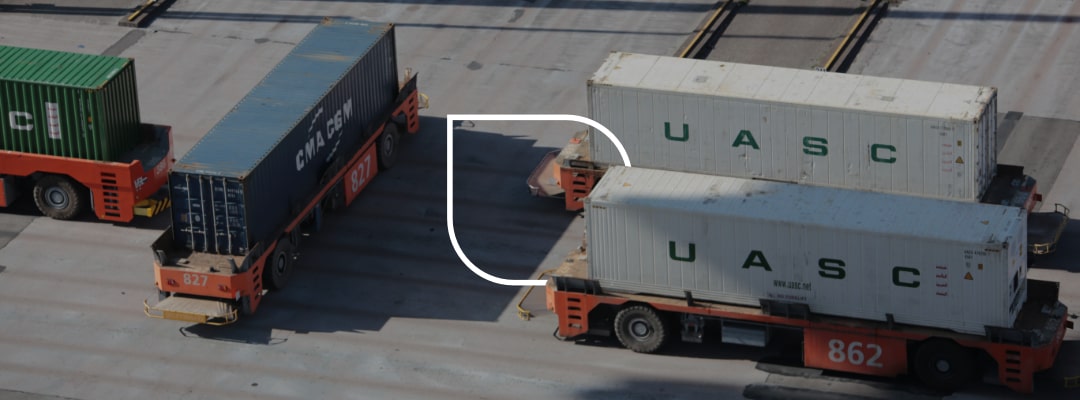
Cost sharing
The seller bears the costs of:
- preparation of the goods for transport, including quality control, measuring, weighing, counting,
- possible damage to the goods before delivery,
- packaging and labeling of the goods, if required for the selected means of transport.
In turn, the buyer must pay for:
- everything related to import, export and transit,
- everything related to the goods from the moment of delivery,
- customs duties and taxes,
- possible costs related to non-collection of the goods.
Division of responsibilities
The Seller shall be responsible for: delivering the goods to the pre-established place, providing the commercial invoice and other required documents, notifying the buyer of the date on which the goods will be made available to him, providing the buyer with the information required for insurance, and assisting the buyer – at the buyer’s request, risk and expense – in obtaining the authorization required for export and the documents required for the completion of formalities.
In turn, the buyer is obligated: at its own risk and expense, to obtain the documents necessary for the fulfillment of all formalities, to take care of the import, export and transit, to organize the transport of the goods from the place of delivery, to take possession of the goods and provide the Seller with a receipt, to take care of unloading and loading, to bear all costs and risks associated with the goods from the moment of delivery.
Time of transfer of risk
The risk shall pass to the buyer when the goods (without loading) are made available to him by the seller. From this moment the buyer bears the risk of loss, theft or damage to the goods.
Forms of transportation
EXW Incoterms® does not refer exclusively to one mode of transportation, but may be used for all modes of transportation.
What you should consider when choosing Incoterms® EXW?
When choosing Incoterms® EXW, it is important to remember that the buyer and seller are not obliged to conclude an insurance contract for the goods. In addition, with EXW, the buyer bears all the costs and risks of exporting, transporting and importing the goods. While other rules allow this responsibility to be shared, EXW does not require the seller to assume some of the responsibilities.
EXW vs. other rules
Incoterms® FOB is sometimes chosen instead of EXW. The difference between the two is that EXW requires the seller to deliver the product to a specific location and the buyer to pay the transportation costs. With FOB, the seller is responsible for the goods until they are loaded. After this point, the responsibility is transferred to the buyer. However, it should be noted that FOB applies only to transportation by water.
Trade with Foodcom S.A.
Incoterms® rules may seem complicated at first glance, but working with Foodcom S.A. will greatly simplify the entire trading process. Our sales representatives will select the best mode of transportation by consulting with the experienced specialists of our logistics department. Cooperation with our sales support team guarantees that the transaction will be carried out in optimal conditions and that the expectations of Business Partners will be met. At Foodcom S.A. we are able to comprehensively handle even the most demanding transactions, and the entire process runs smoothly and according to plan.

